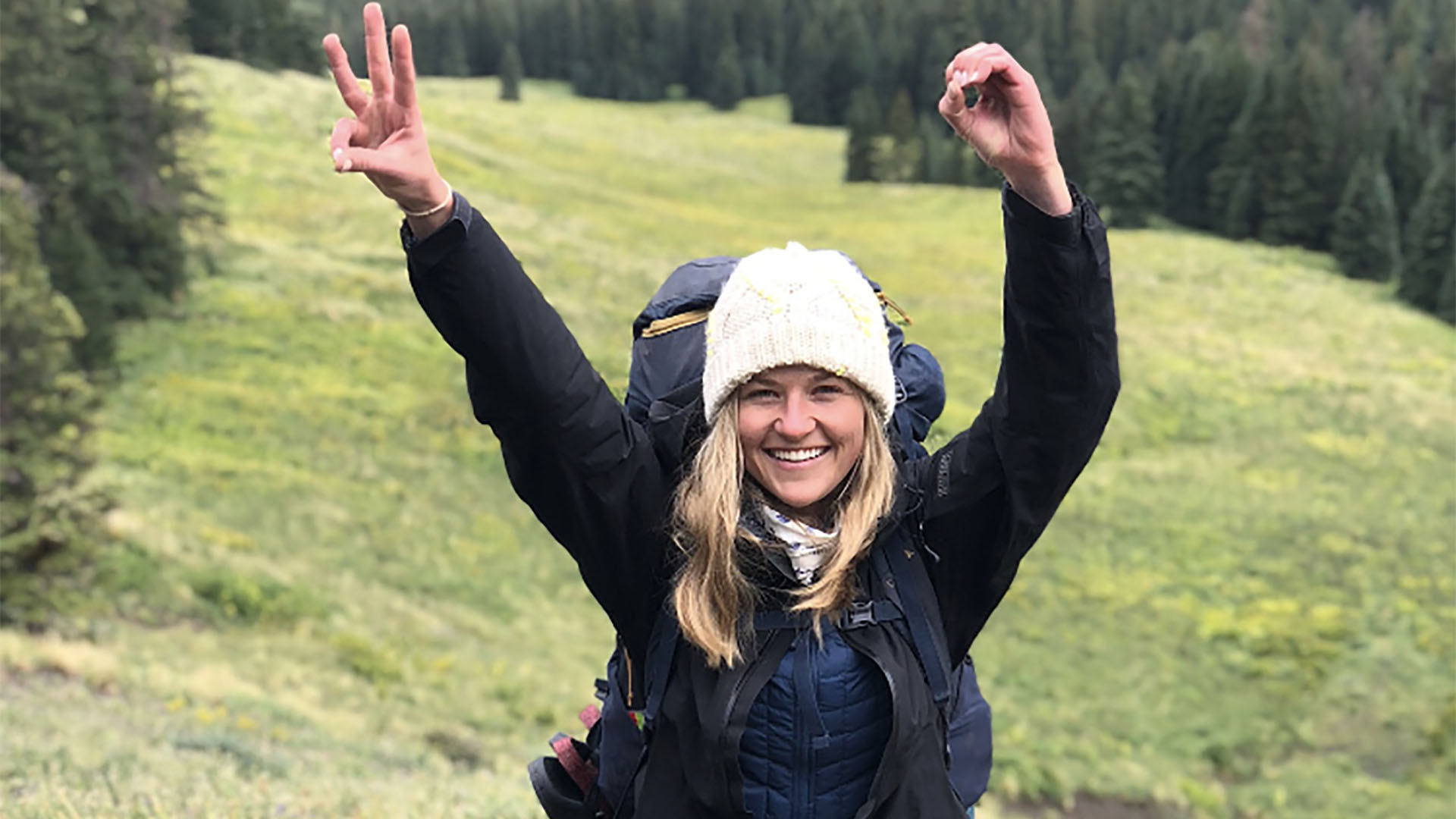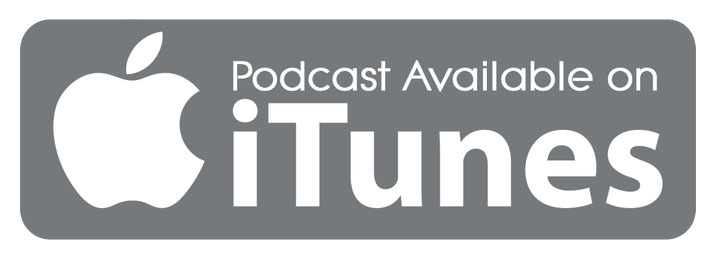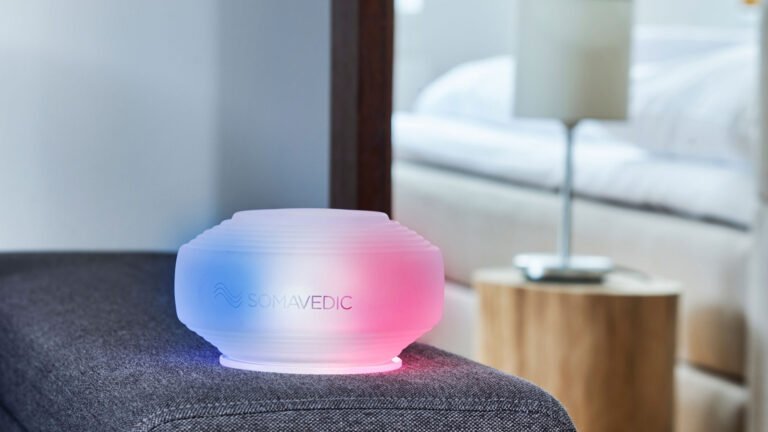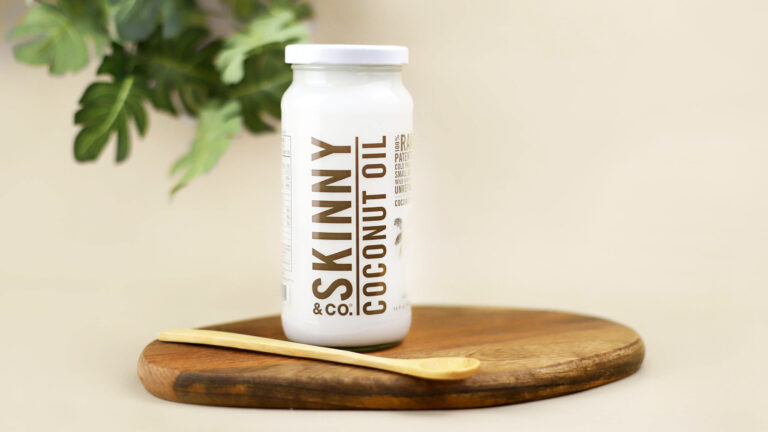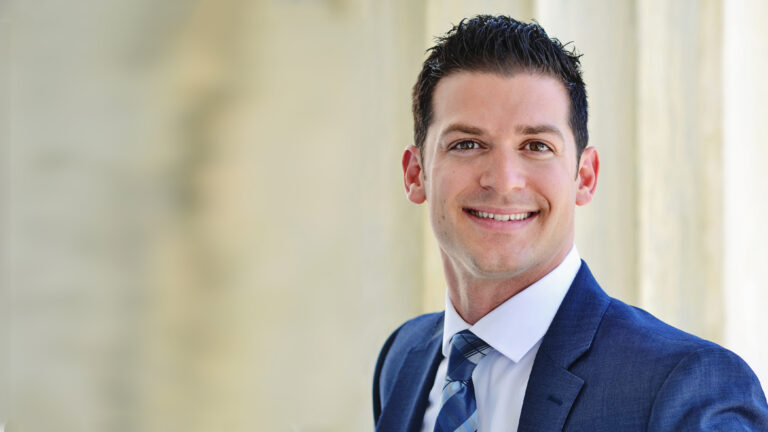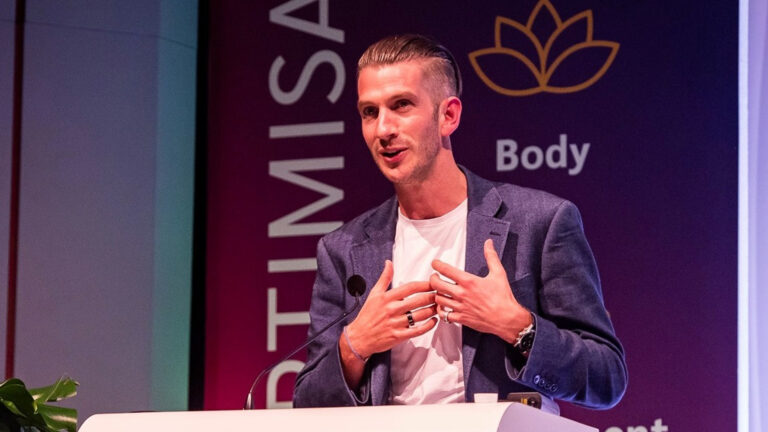There’s a silent epidemic happening right now that’s really perplexing medicine, and it’s not coronavirus. We’re talking about Lyme disease. It’s a polarizing topic, but Lyme patients are often not heard, and under-represented. That’s why this episode is a special one, allowing for an uncut, authentic telling of one person’s journey, struggles, challenges, frustrations, and ultimate recovery from Lyme disease.
This is the story of healing from Lyme Disease with Heather Lowery – Part 1.
Enjoy the show!
Have a Listen
Connect with Heather
Watch Heather’s Story: on YouTube
More on Heather: www.NYCIM.com
The Transcript
Caspar Szulc: 00:19
Your health, your story, the podcast. Hey everybody. Caspar Szulc here from Innovative Medicine. I wanted to do something a little bit different for this podcast being that it is may and it is Lyme awareness month and so many people are struggling with Lyme and their stories sometimes go unheard. One of the things I’ve always wanted to do is share those stories to empower others going through similar situations, and today we’re going to allow one patient formerly from New York center for innovative medicine who is now a colleague of mine and a wonderful person to share their story, unencumbered. No questions, no kind of dialogue. It’s going to be straight through. You’re going to hear her story, the ups, the downs, the struggles and the triumphs and where she finally was able to overcome chronic Lyme disease. This is the story of healing from Lyme with Heather Lowery.
Heather Lowery: 01:18
Okay. So I grew up in West Texas in a town called Midland, which is relatively small. It’s pretty much known for oil and football and tumbleweeds and whatnot. I grew up in the Bible belt, so everybody went to church and I grew up in a Christian environment where I went to church every Sunday and very much a faith based community. And in all honesty, I’m not one of those people that had a traumatic childhood. My childhood was amazing; like filled with adventure and fun. I am the third of four children and I have two really incredible parents who were very positive and uplifting always growing up. I mean, I, there’s certain things that I grew up with my parents saying that I feel like is on replay in my head. Things like ‘have an attitude of gratitude’ and ‘if you don’t have something nice to say, don’t say anything at all’.
So I feel like all of that really facilitated a I don’t know, a healthy growth and maturation and in kind of a healthy mindset. So yeah, it was very uplifting and fun and positive. And I don’t think I could ask for, for better parents. I can remember growing up and like one time I started preschool and I got out of the car was super nervous and I turned around and my dad yelled out the window, you’re a champion and a winner. And from that day on it was like, that was a thing. That’s what he told us. And so we would tell each other that growing up. So yeah, my childhood was, was great. Trials came, but those were more later on. But I was very, very blessed.
My mom comes from pretty solid German roots, so it was pretty strict. And you know, it was, she was very, my, both of my parents were very understanding and empathetic, but also, you know, there came a time where it was like, all right, life’s tough. Life’s hard. Like, pull yourself up by the bootstraps and let’s go. So I think that it created a lot of perseverance in me and that on top of playing sports. So a lot of my faith and growing up in that community, it was just kind of a lot of grit was instilled in me. Like you don’t give up, positive mindsets, things like that.
So yeah, honestly I was a very healthy a kid all the way really until college. I don’t ever remember getting sick. I think I had a stomach bug once. I never got strep, maybe once, no ear infections. I did have migraines at a very young age, which everyone thought was very weird. I would get so sick that I would throw up and have to go home from school, stay in bed all day. And that started at age five and continued on into my adulthood. But other than that, I never got sick, never had an issue. Ha had a little bit of anxiety and depression in high school more so because I was so hard on myself. So lots of lessons in just kind of self perfectionism. But other than that I was great until I went to college. So and even in college I was healthy, but in college I I think it was like my sophomore year, I got hit in the mouth on the bottom teeth. It’s a long story, but I had a couple of teeth that cracked and so I had to get some root canals.
And then on top of that I also hadn’t had my teeth cleaned in God knows how long, but I had another root canal that I had to get. So I think I had four total root canals and then also had two cavities, but I was all kind of broke at the time and wanted to go the cheap route. So I went the cheap route and got silver fillings in my mouth. So I had some amalgams. I’m not really knowing, you know, the repercussions of that, but that on top of some root canals. And I would say at that point I started to notice, huh. I don’t feel as good as I used to. But nothing dramatic. I still, you know, played intramurals in college, got good grades, you know, made it to grad school and all that good stuff. But that definitely took a hit.
And then again right before my senior year in college, I went to Africa for a month and I did a medical mission trip on the coast of Kenya. And during that time there was a week period there where I got really sick. I’m like fevers, kind of not feeling good, achy, they thought it was malaria, but ended up being fine, bounced back, came back, went to the rest of w, you know, made it through my senior year. And, but I would say at that point I started feeling maybe a little less good, but I still thought, Oh, it’s probably stress and I’m fine and no big deal. Then I moved to Peru right before I started PA school. Right after I graduated college. So I had this year off and I lived there for like nine or 10 months and there was a two week period where I was down for the count.
It looked kind of like yellow fever, night sweats, things like that. Didn’t feel good, spent a lot of time in the jungle, don’t know if something happened there. Went to the doctors, they thought again, like is this malaria? And then it wasn’t, and after that came back, you know, felt fine, bounced back, didn’t have any issues and went to PA school. And then during PA school I, you know, felt relatively good. I mean I ran half marathons and studied, but I did get diagnosed with the adult onset ADHD because I had such a hard time focusing and I had never had that problem before. So I feel like I was always healthy. No big issues, wasn’t hospitalized or anything like that. Just kind of little knocks along the way. But again, graduated from PA school did fine, felt pretty good overall. Then all of it kind of came crashing down.
When I took my first job out of school, so I took my first job at an alternative medicine clinic. In kind of more of a functional medicine clinic, was really excited about it. Had just learned about, you know, different approaches to getting to the root cause of issues and completely pumped. I was 26 and when I moved to, to start that job, I did not know that I moved into a house that was loaded with black mold. I didn’t know until I lived there for a few days and was like, man, I do not feel good. Like I’m seeing spots everywhere and I can’t focus. And then one day I was looking in a cabinet somewhere and notice black mold all over everywhere. And having worked in alternative medicine for a bit, you know, I kind of had an idea of, ‘Oh, black mold can make you sick’ and maybe that’s what the issue is.
So I took another kind of little hit. So it’s just little hits along the way. And then during that first year of working, I had a really traumatic, emotional event that happened and that kind of took me down a little bit lower and made things harder on me and I started not feeling good at all. I’m kind of just tired all the time. You know, increased headaches, things like that. So I started chasing like, what in the world could this be? Maybe it’s black mold. I’m still not out. And I feel like for, for patients out there who have the similar stories, what you do, you are like, ‘okay, well maybe it’s black mold. Well, maybe it’s my teeth. I had root canals done’. I was learning all this about amalgams and root canals and the effect they can have on your health.
So I started chasing all these different, you know, routes of man, maybe this is why I’m not feeling great. And again, I was still pretty good, but, but not 100%, maybe not even 80%, but I was, I was functioning. And then I decided, and this was kinda like the last piece of the puzzle that tipped me over. I explored the teeth route and decided to have a 3D cone beam scan done of my mouth and saw that all of my root canals were infact infected. Not terrible, but enough to where, you know, that could take a toll on your health and then learned about amalgam fillings and how those can release mercury into your body. And so I had all of those removed within two days of each other and I think I did it all on the same day. And from that day forward I was not the same person.
So it was like I had this, we give this analogy a lot here, but I had this bucket that was just kinda getting full, full, full, full, full, got to the top, tipped over and then, and then all the really bad symptoms started setting in. So it started with I started getting out heart palpitations, didn’t really know why I lost my menstrual cycle. Started getting really bad back pain, had never had back pain before. And then it migrated to my knees and then my knees and my back and then my hands. So it slowly got worse and worse to where I ended up on crutches because I could hardly walk partially because of the pain, but also because it’s like I would tell my legs, ‘Hey, it’s time to move’. And they didn’t really want to move. Like I wanted them to.
So almost kinda like an MS type picture. But even worse than the pain – which the pain was excruciating and the fatigue was incredible. You know, like you get out of bed in the morning, lift your arm, you’re like, I can’t even do that. That like took my breath away. This is, I’m so tired, but I can’t sleep. But even worse than that was the psychiatric symptoms. So the disassociation, feeling like I was separated from my body; almost and not connected to my emotions and the incredible depression of, I feel like there is no longer any hope in the world, like a very dark place, dark, terrible place to be. And so over the course of about a year, it just got worse and worse and worse to where I was essentially debilitated and didn’t really know what to do.
I and then of course, you know, I’m obviously, I’m working at that time treating patients who were in my situation and I’m sure they’re like, why is this girl helping me? Two weeks ago she wasn’t in crutches and now she can hardly walk. Like who, who is this person? And I was doing all the right things, you know, the diet, attempting to think positively, but you know, in retrospect probably wasn’t. But I think what kept me getting even worse was the, was the kind of spiritual stuff that was going on. Like the, that trauma that happened was kind of ongoing. And there’s a scripture that says ‘a cheerful heart is good medicine, but a crushed spirit dries up bones’. And that’s what was happening to my body. I was just drawing up and everything was, I was kind of dying.
So yeah, so went down all these avenues again. Okay. Maybe it wasn’t the teeth or maybe that was too much, or maybe I need to detox or, you know, maybe it’s still the mold and I have mold illness. And so I went down the Dr. Shoemaker route of mold, but then my knee kept swelling up like everything would hurt, but my right knee kept swelling up and I was like, ‘gosh, that’s weird’. So I tested myself for every autoimmune disease I could think of. Other than I didn’t do an MRI or whatnot to look more into MS just cause I was scared to be honest. And the only thing that kept popping up, I was negative for all the typical stuff, you know, like an autoimmune thyroid condition. Rheumatoid arthritis didn’t really line up with lupus.
There was just kind of, everything was getting ruled out. But on my on my bed embolic panel, all of my liver enzymes were like through the roof. I mean, normal AST alt is around 30 ish. I’m probably somewhere close to that. In mind would be like 300, three 50. So it was like, clearly something’s wrong, but I can’t, I can’t see to figure out what’s going on. So, but when the knee thing happened, a little light switch went off and I thought, could it be Lyme disease? There’s no way. I don’t remember getting bit by a tick. I, I was around ticks as a kid in Texas. You, you hunt deer and you know, deer have ticks and you get a deer, which I didn’t do often, but I thought, well, maybe, maybe that’s what it was. So I did a Western blot and it was kind of, which was kind of fun when you’re, when you’re a practitioner, you just ordered everything on yourself.
And I had doctors helping me as well, but the Western blot was borderline. It was like, no, maybe you’ve kinda had it in the past, but it doesn’t look like it’s active. So I did another test out of California and I think it’s called immuno-sciences, something like that. And it was positive based on their criteria. So that was kind of like, huh, well maybe this is the route that I need to, to go down. Maybe all of this is Lyme disease, or maybe it’s a combination of all of them. I have no idea. And then I had a doctor that worked alongside us that did dark field microscopy where you take a drop of blood and look at it under a microscope. So we did that and all these spirochetes came out and it was like, Oh, maybe it really is Lyme.
So that’s when I went down the Lyme route. And at that point I was like a year and a half into my job on crutches with knee braces, having a hard time walking, having a hard time thinking, not myself withdrawing from family and friends just in a really dark place. So I finally took a leave of absence from my job and I moved home at 27. I was 27, moved to my parents’ house, jobless. I’m in so much pain, incredibly depressed. And I…so whenever I had those root canals removed I had a flipper put in because I didn’t want to do implants yet because I didn’t know how I would respond. So I had teeth that popped out. So it was [inaudible] you know, this is really bad because I don’t have teeth. I’m 27 and I’m in crutches. I can’t work. I can’t think I’m losing friends. I don’t know what’s going on. So that was probably like ultimate or one of the ultimate low points.
I did feel that I had a ‘why’ at that point, but I also had been treating myself accordingly as if I had Lyme with the help of two or three other doctors. So when we figured out it was the Lyme, then we did the antibiotic route. When that wasn’t working, I tried everything that we had at the clinic that I worked at, UVB treatments, high doses, vitamin C then a lot of herbs, oral protocols and things like that. And I did that for several months and didn’t see any improvements. So I thought, I know it’s Lyme cause I saw the bacteria with my own eyes. But I’m not confident that that’s the only thing that’s going on and I have no idea how, where to go from here cause I’ve been pulling from incredibly intelligent people and I can’t seem to get anywhere.
So after that I moved home and you know, had to swallow my pride and ask for help from my family and my parents. So we decided collectively, my parents are, like I said earlier, they’re wonderful people that we would choose. I would choose someone to go see and they would choose someone for me to see. And so I had done tons of research on, you know, the best doctors, the Lyme literate doctors, the, the specialists in alternative medicine and integrative medicine here and overseas and whatnot. So we figured we’d start in the States. So we did. So I initially saw someone in Pennsylvania actually alive literate doctor, and based on her evaluation, she believed that I not only had Lyme disease, but a bunch of co-infections. So so we went down the antibiotic route again, and I did that for probably two or three months, didn’t see any improvement, was getting worse, and then decided, okay, well we’re gonna try this other route.
And so I wound up on the West coast in Washington and saw an alternative doctor there and kind of went down that road for, I don’t even know, four to six months. And it was their I and they confirmed, yes, we think it’s Lyme and you also have heavy metals, which I kind of knew. But I was taking so many supplements and trying all of these treatments and things that I had previously done, just maybe in a little bit different order and things like that, but it, it, I continued to get worse. Actually, remember, this was a very low point. I, my parents and I were up there and I was getting treatment and, and again, not really seeing much improvement, still in crutches in the whole nine yards. But I went to the bathroom, I was at a theater with my parents were seeing a movie and I decided I needed to go to the bathroom, so I’d get up and go to the bathroom and I stand up from using the restroom.
And all of a sudden it was like, my legs aren’t moving. And it was like I was having a hard time. It was bizarre and it kind of came back and I was able to leave the stall, but I just stood there and I just bawled and cried and cried and cried and like the ugly, you know, cry of, I don’t see a light at the end of this tunnel. This is just getting worse. And I remember my mom came in because obviously I had been gone for a bit and I just cried and said, ‘mom, I can’t move my legs. I can’t move my legs’. And so we, of course, my mom cried with me. And it was just, it was a very much a low point.
“And I remember thinking, I don’t want to be alive if this is what life is like. I can’t think. I can’t contribute to society. I just, I don’t want to be in this pain. I don’t want to have this fatigue.”
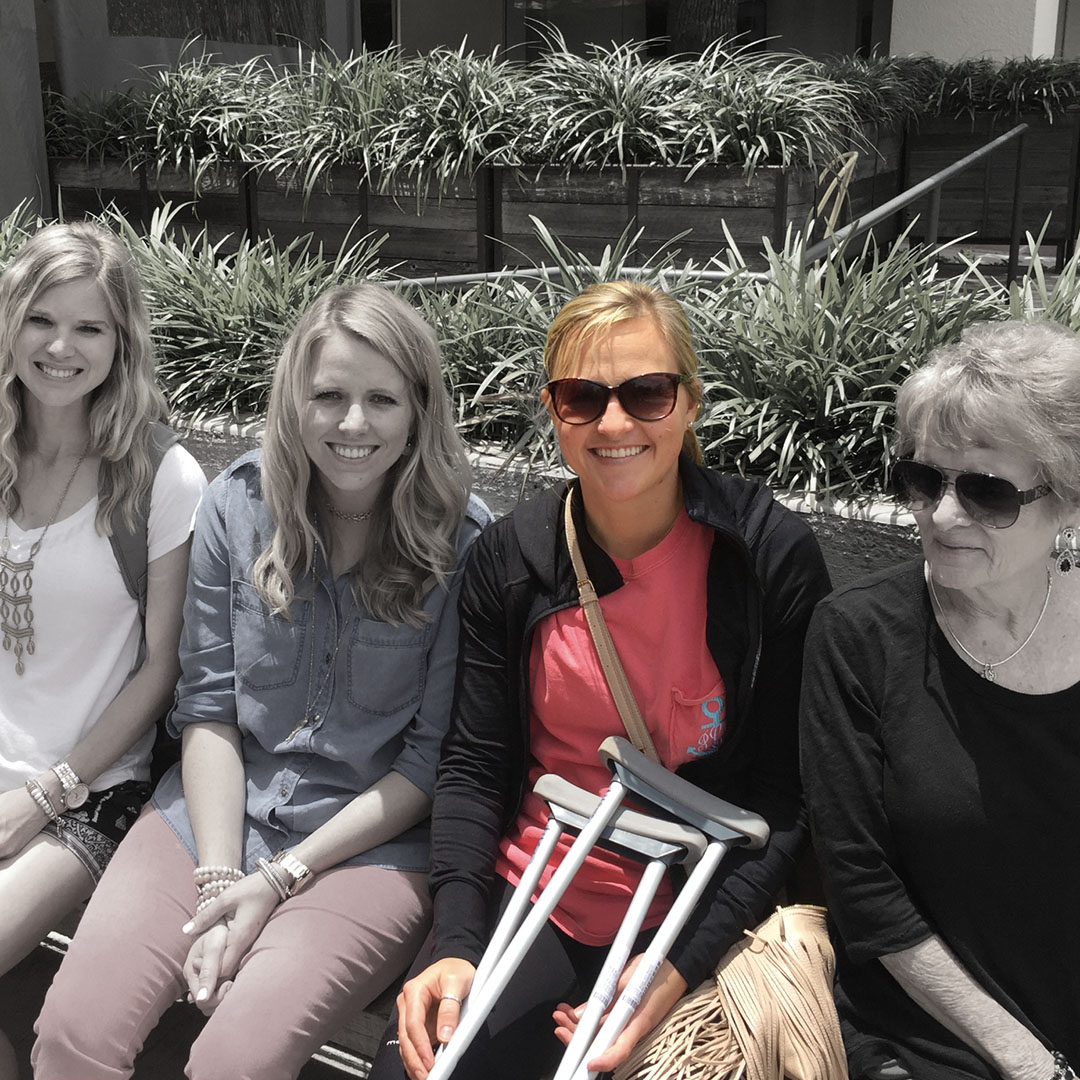
And then somewhere, I think before that this was a big low point. I was home with my knee braces on, laying on the couch with my crutches next to me, just completely like, I don’t even want to stand up cause it hurts to move anything. I don’t want to shake someone’s hand cause it hurts when they grabbed my hand. I don’t want to talk to anybody cause I’m not myself anymore. I don’t even know this person. I don’t even, I don’t even remember what it’s like to like be social or you know, have a conversation or I just feel like out weirdly outside myself. And I remember thinking, I don’t want to be alive if this is what life is like. I can’t think. I can’t contribute to society. I just, I don’t want to be in this pain. I don’t want to have this fatigue. And I just remember being like, Lord, I would really appreciate it if there’s not an answer, could you please just take me and take me quickly.
And I contemplated suicide to be honest for, for quite some time because I just didn’t even want to wake up anymore. But I couldn’t do that because I knew that it would destroy my parents and be hard on them. And you know, my family and friends. But I remember being on the couch just kind of running through, okay, well, how’s, how’s it going? How could I die gracefully? Like maybe I’ll walk outside and a car will hit me and it’d be like, sorry y’all, like how could this, how could this go? And I was just crying and my dad came and sat next to me and he was like and he never cries. Now I’m going to cry. So here we go. But he was like, Heather, we’re going to do anything and everything that we can to help you and your only job is you’re not allowed to give up. And he said that literally the perfect time. So I think the Lord just told him that. And he told, and he relayed that message to me and it was confirmation that I, I can’t give up because there’s really only one option here and it’s to get well. And I always thought I had this, like the Lord kept telling me the whole way through, ‘Hey, I’m with you, I’m with you, I’m with you’. And so I had a sense of peace and then that like inner grit from childhood and those, those things replaying in my head like have an attitude of gratitude, which you don’t want to have when you can’t walk and you just want to like, you know, have the lights go out. But anyway, so all of that kind of happened at once.
And then I was in Washington for a followup and I had heard about this book. And it’s Ally Hilfiger’s book called ‘Bite Me’, which I feel like a lot of people have heard about that. I had just been praying and searching and on the internet, like all chronically ill sick people are searching for answers and heard about this book I couldn’t read at the time, which sounds bizarre. I mean I could kind of, but it was hard and things like would jumbled together and I couldn’t remember what I was reading, but so I would just like briefly search on the internet on, you know, little nugget points and came across that and told my mom about it and my mom read the book. And lo and behold, kind of went through figuring out what Ally did to get well and then said, ‘Hey, have you heard about this place? It’s called the New York Center for Innovative Medicine‘. And I thought, no, I haven’t heard of it because I mean, I was in the world of alternative medicine. I had never heard of it.
But I, I didn’t really want to change protocols. I had been on this was like, I don’t even know. It was my fourth or fifth doctor at that point. And I really tried to stick with what they wanted me to do and the thought of changing all that again and starting over and let’s see if this works. Let’s see if this works. Let’s try this diet, keto diet, paleo, gluten free, vegan, you know, tried it all and it was just too much. It was like too many options and I don’t feel like I’m getting anywhere. So I didn’t want to go. But then I watched a Ted talk about somebody who had Lyme and very similar situation to me, super healthy and then, you know, kind of some weird things. And then boom, mid twenties super sick.
I hadn’t witnessed anybody talk about it or met somebody that said, you know what? I had that and I’m better and I’m great and I feel wonderful. If you’re a part of those online group chats, they’re always, everybody’s just still sick, you know, I’m still miserable. I tried this and still sick, tried this and I still hate my life. So I had never talked to anybody that actually got better. So I watched this Ted talk and stalked that person on Facebook, like a total creep. Like, ‘I will find this person and I will ask them how they’re doing, ask that person how they were doing’. And they said, fantastic, still fantastic. And I, for the first time in a long time had real hope. Oh, they were sick. They got better. I’m doing what they did and I don’t care what it takes.
So low and behold, I showed up at the New York Center for Innovative Medicine and I remember my first appointment talking to Caitlin and Dr. Szulc. And I said, if you told me, ‘Heather, you need to shave your head in order for you to get better and better, and for the rest of your life you’re going to be bald’. I would’ve been like, yeah, I will do it. Whatever you say, I will do it. I don’t care at this point, if I can get 40% better, if I could get 50% better, if I can function and get out of my parents’ house, that’s wonderful. Like sign me up for that for life. So whatever you tell me to do, I’m all in. And I don’t know why I just had this peace about being there and for the first time knew this is where I needed to be.
“I remember walking into that clinic [NYCIM]…and I felt like when I kind of hobbled through I could breathe for the first time. It was like, ‘I’m where I need to be’. And I had that sense of peace from the get go.”
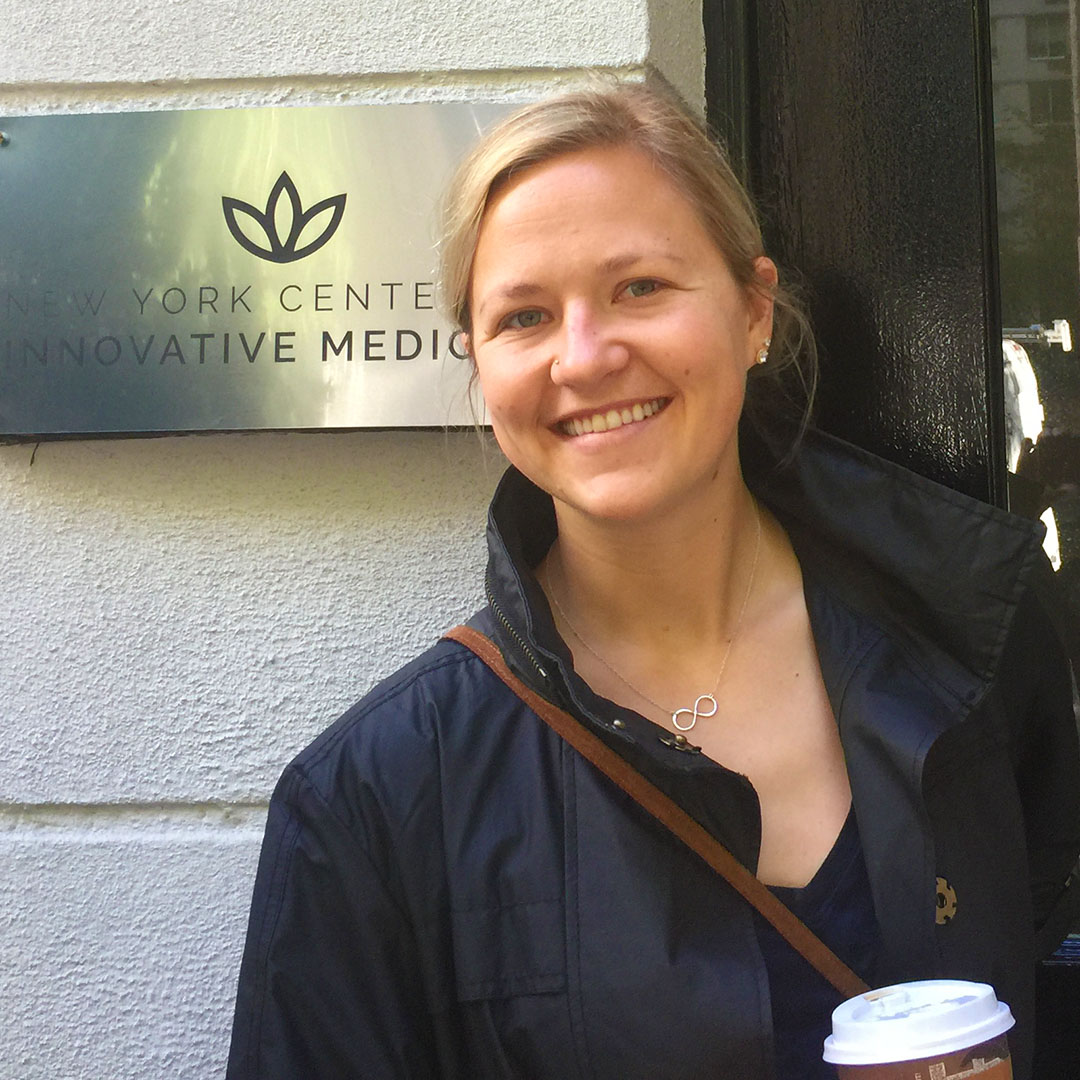
And I really think that that’s key and extremely important in anybody that has a chronic illness that they find somebody that they trust and they know that I’m going to do this and I’m going to go all in. And you really, I mean, I say follow the Holy Spirit where the Lord is leading you, but if you’re not a believer, man, follow your intuition. Cause you know in your heart what is the right path for you. And whenever you find that path, it’s okay to, you know, ask questions and whatnot, but you really have to go in and say, ‘I’m going all in. I’m going to do everything that you tell me too, and I’m going to take responsibility for my own thoughts and my role in all of this’. And, and then you go for it. If you doubt the whole time and you doubt the process and you doubt the treatment, I don’t care who you’re seeing, you’re probably not going to get well.
I remember walking into that clinic, which was in Manhattan at the time, and I felt like when I kind of hobbled through I could breathe for the first time. It was like, ‘I’m where I need to be’. And I had that sense of peace from the get go. I had no idea what to expect. I didn’t know what blood tests this fancy blood tests that they were going to do on me was, I pictured myself just giving vials. I didn’t even care. I mean, I would do whatever, but I’m on that initial evaluation. I just remember you know, it was, it was pretty, it wasn’t anything intense. It was just kind of asking some questions. I’m going to feel your pulse and do some acupuncture stuff. Not acupuncture, but check meridians and things like that. And I remember maybe not being able to understand everything that Dr. Szulc said. I was like, come again, what accent is that? I can’t tell. But I just was like, I’ll just go for it. So I really wasn’t scared. I was just so hopeful that I was, dare I say excited, which I had not been in a really long time. And I remember he pin pricked my finger and put it on a slide and, and I thought, ‘That’s it? That’s all you need. Well, great. That’s wonderful. That’s way easier than I thought that it was going to be.’
So we did that and just kind of stayed in the city and was with my mom at the time. And the next day we showed up from my follow-up kind of a little scared. Like, what if he tells me I have cancer? Because when you, when you’re in that phase for a long time, you kind of start to get into like worst case scenario, you know, fearful and you’d kind of dwell on that. Well, if I continue to get like this, this is going to happen and this is going to happen and this is going to happen. And I kind of ruminated on that, which was not healthy.
But for the followup exam, I remember hat Dr. Szulc and Caitlin saying, I didn’t know that someone could have so much infection. And I was like, really what, what all is going on? And it was, I mean, I definitely had Epstein BARR for like most people do, but it was in my brain. And then Lyme disease, which was also in my brain, but I had Bartonella, Babesia, mycoplasma, you know, candida…the whole nine yards. And toxicity was super high, extreme emotional stress, emotional trauma that happened. That was kind of messing up my brain function. And then, you know, a whole slew of other issues and, you know, sluggish lymphatic system, very similar to what we see here.
But it felt kind of liberating because it was like, Hey, these are all the things that are going on. And instead of them kind of throwing like, we’re going to try this for a while and see if it works in this for a while and see if it works. Which is what I had been doing. It was this is what you have and this is exactly what we’re gonna do and this is tailored to you. This is your personalized treatment plan and no, you don’t have to do IVs for the rest of your life because that’s kind of the road I was on. I would start IVs on myself at home. I would leave the clinic, go home and start IVs on or have friends come over and do it for me. So to have kind of a concise, okay, you’re doing this many detox IVs and this is going to help with, you know, help clear up your cellular environment and then we’re going to do antimicrobials and this is exactly how many you need for you.
And then we’re going to address the emotional component. So it felt like for the first time ever, all of the questions I had of like, when did this start? And I feel like I have everything and I don’t even know what to address. First I had a plan, a specific, very personalized treatment plan and it felt so good and it kind of cleared up that chaos that goes on in your brain. I’ll try this and then I’ll try this and now hopefully something works or sticks or, and the next thing you know, you’re taking 50 supplements and and not feeling better and not confident in it, but they were so confident with this is what you have to do. You do this, you will get better. But the biggest thing was he I remember them telling me specifically if you do not change your thought life, you will never get better. And I was like, ‘did you look into my soul? How did you see that? That’s weird.’ But I mean, down to specific thoughts I had and just kind of like the depressive, whatever that was going on. But I just thought, okay, you tell me to change my thoughts, dad gum and I’m changing my thoughts and I’m going to be positive Patty for the rest of my life, like just watch. So yeah, that was so different from anything I had experienced before because it felt like here’s a set plan and here’s your from diagnosis. You know, there are lots of things going on. We’re going to address all of it and this is the, this is the plan for how we’re going to carry that out.
Physically, at that point I had kind of been off and on crutches was not doing great would have maybe some better days than others, but really, really terrible. And the fatigue, and the brain fo,g and the memory loss, and all of that were kind of those in particular were at an all time high. So I went in physically feeling awful, but in my spirit felt hopeful. And then I remember leaving the clinic that day. I started treatment right away. I was like, let’s do it. I’m ready. But I felt so hopeful that even I think my next evaluation they commented in your level of consciousness has gone up quite a bit. And I’m like, cause I’m excited and I’m hopeful. But I just felt like, man, this is, this is it, this is going to help me move on with my life and this phase of darkness and pain and suffering and all of that. This is coming to an end. This, it’s going to be something wonderful and great.
And I hadn’t experienced that in forever. Obviously I’m from Texas and was getting treated in New York, so I stayed up in New York for six weeks initially. Because I had to do quite a few IV detoxes and quite a few antimicrobials, the whole nine yards and then a lot of regenerative treatments after that. And I would say, honestly, I felt terrible. I wish I could say, man, I had two… three detoxes and felt like a new person, but it was awful. Like, my knees would swell up more. I feel I had a lot of emotional stuff come out. I mean, I would get mad at things that happened 10 years ago that I didn’t even think I still cared about. I would say that pretty much any symptom I had was exacerbated not to where I was completely debilitated or anything like that, but it definitely, I did not feel good.
So it was like, I had had Herx reactions before and even detox symptoms that were worse than this, but, you know, it wasn’t to start the treatment and gradually you get better. It was start the treatment and pretty much you feel crummy the whole time. And I remember doing the antimicrobials and just really not feeling like my best self, but I was still able to, you know, get out of bed and that kind of thing. I would say after the regenerative phase of treatment, which was like IV NAD+ and phospholipids and things like that, I started to notice a little bit of an improvement. Like, Oh, maybe I have a little bit more energy. And I did some emotional treatments as well, but then I went home for probably two or three months and then sent my blood and again, and I would say I still wasn’t feeling great, maybe like 15 to 20% better after two to three months.
So I would, every couple of months, send in my blood and make a few changes and whatnot. And then probably after almost a year I was like 80% better. But my recovery was like this – I would dip down really low and be like, ‘nothing worked. I hate life’. And then I would reach a new threshold and be better and then it would dip really low and then I’d reach another threshold. And then after that year I was even frustrated cause I thought,’ man, I’m still not 100%. And I talked to this person and they were 100% what am I doing wrong? Like what can I do to make this better?’ And anytime I would send my blood in or get evaluated, it was always like, ‘Hey, the emotional/spiritual component is through the roof, so maybe, maybe you should address that.’
So when I finally started really kind of pushing into that, that’s when my improvement got dramatically better. I definitely had days where I would say I got extremely frustrated and I thought maybe this worked on other people, but I guess maybe it’s not working on me. And I would, I don’t know, just get so frustrated that I would cry or I would, you know, like yell about it to my parents or something. And I definitely had moments where I was thinking maybe, maybe it didn’t work or maybe I’m just, maybe I’ve, I’m not meant to get well all the way. But I would always remember, this is one thing that really got me through. I mean the Lord kind of walked me through the whole thing and kept saying like, you’re going to get there, you’re gonna get there, you’re gonna get there.
So I had that faith of I’m really frustrated but I am going to get there and I would hold on to those moments where I reached that threshold, that higher threshold. And even if it only lasted for a couple of days, I kept thinking, I got there once, I’ll get there again. I got there once, I’ll get there again. I got there once, I’ll get there again. So I think that kind of pulled me out of those slumps two years. I mean I’m like 98% better right now, but I mean a hundred might as well to say a hundred but yeah, no till I got over 90% better. Took two years after I finished treatment. So long run.
So as a result of the treatment, I initially, one of the big things was getting back into work. So that was something they kept pushing on me. Like, you need to get a job, you need to get a job. And I was like, but it still hurts and I’m tired. And you know, I don’t feel like my brain is fully functioning. But I had this vision of me working in a hospital and I thought, that’s really weird. I don’t know if I want to do that. That sounds like a lot. That sounds scary. But I always loved emergency medicine. I almost took a job in emergency medicine right out of school. Instead I took the alternative medicine route, but I really didn’t want to work in this world of, you know, integrative, innovative, functional medicine.
Because when you’ve had Lyme or you’ve been sick for awhile, the last thing you want to do is talk about it all the freaking time. Like when you’re still not better, you don’t want to talk about it because it brings up bad feelings of, but I’m still not there, but I’m still not there. So I wanted to take a step away from that. But I also didn’t want to work in like a primary care setting where I was just, you know, treating diabetes in a way that I didn’t in good, I couldn’t in good conscience, you know, do. So I thought, you know what, I’ll try and apply to some urgent care, you know, emergency rooms and just see which, you know, it’s like, Oh, I can’t work, I can’t work. Maybe I should work in an ER. Who does that? That doesn’t sound logical, but I’m so explaining my gap in my record, in my, you know, work history was really fun because a lot of, there’s a lot of controversy in, you know, is there such a thing as chronic Lyme and you know, why would we hire this girl?
Because if she was sick for awhile, like she’s probably going to get sick again. And you know, so it was, it was scary because I was hard on myself and thought, I’m never gonna get a job. No one would’ve, why would they hire me? I’ve been out a year and a half, but I did get some job offers. When I remember the first time I, my first interview, I just talked a little bit too much probably about Lyme disease cause I hadn’t talked about it and was kind of like becoming myself again. And those, you know, symptoms of disassociation and whatnot were like getting better. But I didn’t, I felt like I didn’t know how to communicate. I don’t know, it was very weird, but definitely didn’t get a call back from them. So that, that was funny. But low and behold I got a job offer at an emergency room that, and the town that I grew up in, it was random at first I applied and I thought, there’s no way they’re not gonna call me back.
And the head doctor actually was really into alternative medicine and was the first person that looked at my work history and was like, Oh, that’s really cool. This is great. And got the job. And so that was like phase one. That was kind of the next first, you know, I got better physically just from the treatments here sort of than even better. And when I addressed more of the emotional stuff and then even better when I started to actually have a purpose in my life.
So I worked in an emergency room, which came with it’s, you know, other issues of being scared that I was going to get everything that everybody had, you know, like this person’s coughing and they’ve got mycoplasma pneumonia, I’m going to get it. But I noticed that my immune system was really strong. I did get the flu at the very beginning, but then after that I didn’t get anything. I didn’t get coughed on and get, you know, anything ever again. It was like I was around these sick people and sick kids all the time and my immune system was rock solid, which was nuts. And that was another sign to me. Oh, this, I think this is working by, gosh, I think it’s working.
The road back to health was, you know, go home, continue to, you know, have a healthy lifestyle, address the emotional stuff. Find a purpose. And then slowly but surely, I just kept climbing and getting better and better to where I finally was able to not only like walk without knee braces but to kind of start exercising again. And then a little bit of yoga and stuff turned into a little bit of running and a little bit of running turned into, you know, orange theory fitness. And the next thing you know, I was so excited cause it was like I haven’t been able to do this stuff in forever and now I am lifting weights and no one can tell I’ve been sick and my joints aren’t swelling and this is fabulous.
So all of that happened and when I finally reached a point of not only feeling better but actually believing, ‘Oh, I am healthy’. I mean, I can tell you the day that I finally decided in my brain I’m healthy. There’s something called cognitive dissonance where you think something in your head but you don’t necessarily believe it in your heart. And I was in the ER working, you know, pretty exhausted from a long shift and just was kind of worried about getting sick, worried about, you know, my joints weren’t feeling 100% that day, but I just, I had been telling myself over and over again, like, you’re healthy, you’re healthy, you’re healthy. But I don’t think I really believed it, but for some reason that day I had that thought of you’re healthy. And all of a sudden it was like, Oh, Holy smokes, I’m healthy, this is great.
And that also took me to another level of, of health where I believed that I, not only, you know, my body was functioning better, but I believed in my heart that I was actually healthy and normal quotes. So all of that happened. I ended up working in the ER for a little while longer and then sent my blood up here for just, you know, like an annual annual kind of follow up and came up to do just like some maintenance stuff cause I hadn’t been up in a really long time. And while I was here, I had always thought, eventually I would wind up in alternative medicine again. But I just thought, I’m not ready for it. I’m not ready for it cause I’m not healthy. You know, I’m not healthy and I’m not 100% or I’m not, whatever. There was always just something more that I kept making up excuses for it. I’m not ready to talk about that.
But I finally reached a point where I came up here and I thought, ‘Oh, I’m ready for this’. Like not only am I ready for this, but I want to do this. This is my future. Maybe this is why, you know, I got sick in the first place so I could find this place so I could work here so I could help other people. I wasn’t sure, but all I knew was, you know, I love emergency medicine. It’s so much fun. Sewing people up is so much fun. But this is like cutting edge where the future of medicine, in my honest opinion is going and to be able to be a part of that was like my, my big goal. So so then I somehow convinced doctors to hire me. And I moved from Texas and drove my car up here and haven’t looked back.
I think that it gives me life to encourage people and to do what that one person did for me. When I saw the Ted talk and I Facebook stalked them and said, did you actually get better? And they said, yeah, I got better. You can too. So I thought, you can do it. I can do it. So that’s what I want to tell patients. I can do it. You can do it. And your case may be a million times worse than mine. I see so many patients here that make me grateful. Well, I mean, even the support system and things that I have going on, but I want to encourage them and say, I don’t care how far gone you are. There’s always hope, always hope for, usually for full recovery, but at least for significant improvement in your life to get your life back.
So having the opportunity to, to be a part of that and to encourage people is huge. And then this road is kind of like the road less traveled, I would say. It’s not an easy road to recovery. So it’s not like in, in the emergency room, you, someone cuts their arm, you sew them up, immediate results like, great, I helped you today and that’s wonderful. Here it’s, you’re kind of in it for the long run, you know, so you have to be, it’s not so much immediate results, but man, when the results come in, it’s, it’s incredible and exciting and fun to watch people not only get excited but to get their life back and to be so grateful. And I don’t know, there’s just, there’s really nothing like that. And I think that’s what drives me to be here.
How am I feeling today? I would say I am, I mean I feel great. My only, I’m like 98% better. I have, therefore I’m wonderful cause I came here with the expectation of 40% or whatever I said earlier. The only lingering issues I have is a little bit of joint stuff. Not bad. I’m running and whatnot, but I’m always searching for, you know, stuff that can help patients, you know, kind of get over that last hump. So, especially with the Lyme patients, joints are really hard, especially if you’ve had it for a long time. So I am great. I sleep great. I used to have so much insomnia, would stay awake for, you know, 24 hours, 36 hours, and not sleep at all. My energy’s great. My brain functions great. I don’t have any depression. I don’t take any medication. I run, I exercise, I have friends again, I have an incredible family still, and I don’t live with my parents. And I did get teeth. For those of you out there who are wondering, I did get some implants in, so yeah.
Caspar Szulc: 44:14
Well there you have it. The raw and unfiltered story of healing from Lyme disease. Heather laid it all out there and that isn’t easy, but it does show you that regardless of your current condition, whether you’re struggling with Lyme, mold, toxicity, depression, or any illness, there is hope. This was part one of a two-part story. You can call it the setup if you will. Our next podcast, we’ll interview Heather as the physician assistant and medical team member of NYCIM, as she outlines some of the best tips and clinical advice she now gives to patients healing from Lyme and other chronic illnesses. Hear her go into detail the techniques, products, and procedures she found to have the greatest impact and ultimately led her and many others to healing from Lyme. Until then, keep writing your own healing story. [inaudible].
